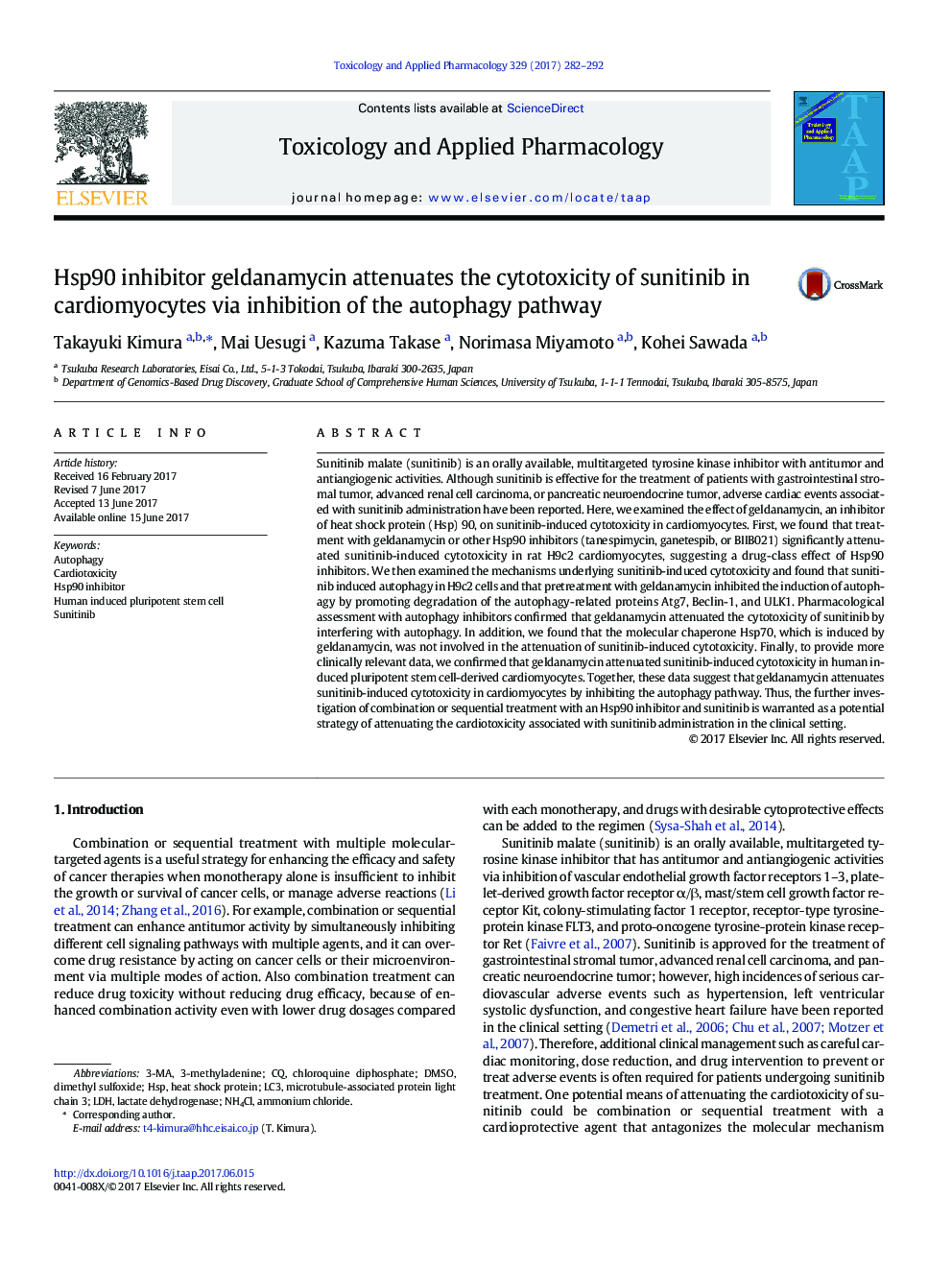| کد مقاله | کد نشریه | سال انتشار | مقاله انگلیسی | نسخه تمام متن |
|---|---|---|---|---|
| 5558360 | 1561133 | 2017 | 11 صفحه PDF | دانلود رایگان |

- Hsp90 inhibitors attenuated sunitinib-induced cytotoxicity in cardiomyocytes.
- Sunitinib induced autophagic flux in cardiomyocytes.
- Geldanamycin degraded autophagy regulator proteins in cardiomyocytes.
- Inhibition of the autophagy pathway attenuated sunitinib-induced cardiotoxicity.
- Hsp70 induction was not involved in attenuating sunitinib-induced cardiotoxicity.
Sunitinib malate (sunitinib) is an orally available, multitargeted tyrosine kinase inhibitor with antitumor and antiangiogenic activities. Although sunitinib is effective for the treatment of patients with gastrointestinal stromal tumor, advanced renal cell carcinoma, or pancreatic neuroendocrine tumor, adverse cardiac events associated with sunitinib administration have been reported. Here, we examined the effect of geldanamycin, an inhibitor of heat shock protein (Hsp) 90, on sunitinib-induced cytotoxicity in cardiomyocytes. First, we found that treatment with geldanamycin or other Hsp90 inhibitors (tanespimycin, ganetespib, or BIIB021) significantly attenuated sunitinib-induced cytotoxicity in rat H9c2 cardiomyocytes, suggesting a drug-class effect of Hsp90 inhibitors. We then examined the mechanisms underlying sunitinib-induced cytotoxicity and found that sunitinib induced autophagy in H9c2 cells and that pretreatment with geldanamycin inhibited the induction of autophagy by promoting degradation of the autophagy-related proteins Atg7, Beclin-1, and ULK1. Pharmacological assessment with autophagy inhibitors confirmed that geldanamycin attenuated the cytotoxicity of sunitinib by interfering with autophagy. In addition, we found that the molecular chaperone Hsp70, which is induced by geldanamycin, was not involved in the attenuation of sunitinib-induced cytotoxicity. Finally, to provide more clinically relevant data, we confirmed that geldanamycin attenuated sunitinib-induced cytotoxicity in human induced pluripotent stem cell-derived cardiomyocytes. Together, these data suggest that geldanamycin attenuates sunitinib-induced cytotoxicity in cardiomyocytes by inhibiting the autophagy pathway. Thus, the further investigation of combination or sequential treatment with an Hsp90 inhibitor and sunitinib is warranted as a potential strategy of attenuating the cardiotoxicity associated with sunitinib administration in the clinical setting.
Journal: Toxicology and Applied Pharmacology - Volume 329, 15 August 2017, Pages 282-292